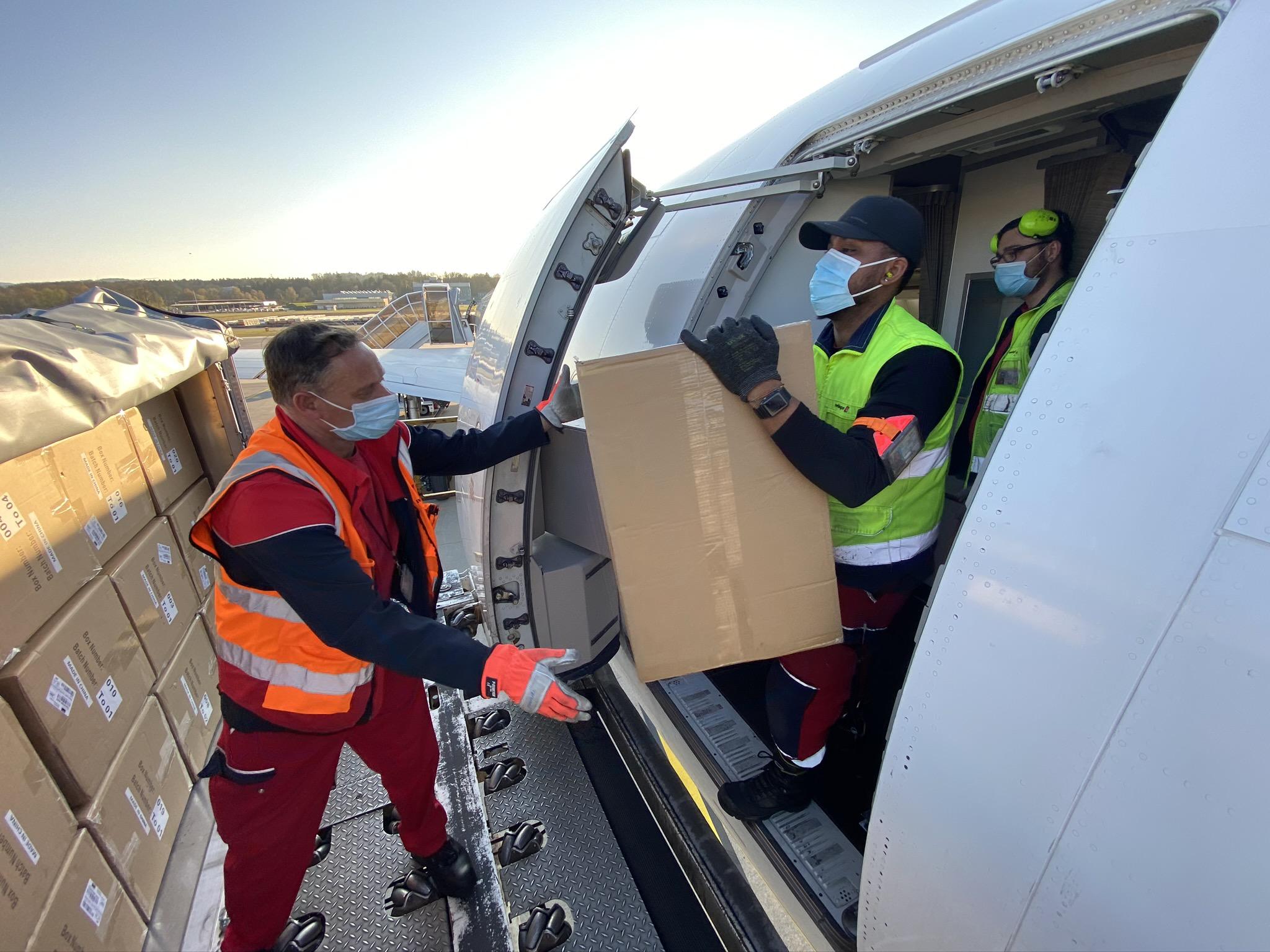
Swiss International Air Lines (SWISS) is operating a series of flights bringing vital protective medical equipment from China to Switzerland. The operation, which is extensively supported by the company’s Swiss WorldCargo airfreight division, is being conducted on behalf of the Zurich Cantonal Pharmacy and in collaboration with knechtcare / Welti-Furrer (the Knecht Group) and Männedorf Hospital.
Under the operation, more than 10 cargo-only SWISS Airbus A340 flights will be performed this month from Mainland China, bringing over 35 million personal protection items for the use of healthcare personnel including protective suits, medical gloves, safety goggles and breathing masks. All in all, the transports will amount to over 200 tonnes.
One of the few sectors holding up relatively well during the corona-crisis is air cargo. In China, for example, several cargo airlines reported rising volumes even during the worst of the outbreak there, and while bellyhold freight took a hit from the collapse in passenger flights, this only meant that pure freighters were in even higher demand.
This trend spread around the world and has led to a build-up of air freight at airport warehouses as air cargo transit times have risen.
“It’s become incredibly time-consuming. Each country has implemented its own rules regarding flights to deal with the virus and many flights are just not there any more,” says Freddie Auton, operations manager for JP Air International, a Heathrow-based air cargo and logistics specialist that usually relies on bellyhold capacity.
In response, many airlines are now taking freight in their passenger compartments to ease the congestion and keep some revenue flowing in. Korean Air, Delta Air Lines, Lufthansa and Qantas are among the many airlines now doing so, while Southwest Airlines has said it will operate cargo-only flights for the first time in its 50-year history.
This presents opportunities for MRO companies with cabin modification capabilities.
Tallinn, Estonia-based Magnetic MRO, for example, is offering two types of modification: one that leaves the passenger seats in place and uses special straps to fix cargo boxes on top of them; and another that removes the seats entirely.
It can also provide cabin modification for medical stretcher installations on various aircraft types.
Meanwhile, parts and MRO specialist AJW has said it is adapting to this passenger-to-cargo shift via its spares and product support services, which were already used by a number of cargo operators.
It noted that unlike passenger operations, freighter hours “tend to be lower as cargo aircraft tend to fly at night, so the logistics differ, although in these unprecedented times this could all change.”





